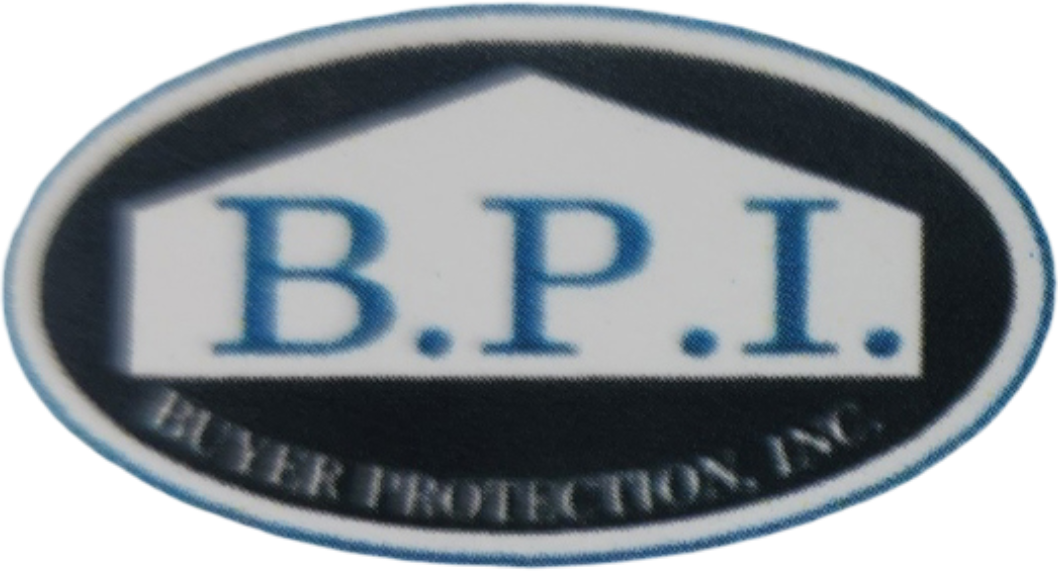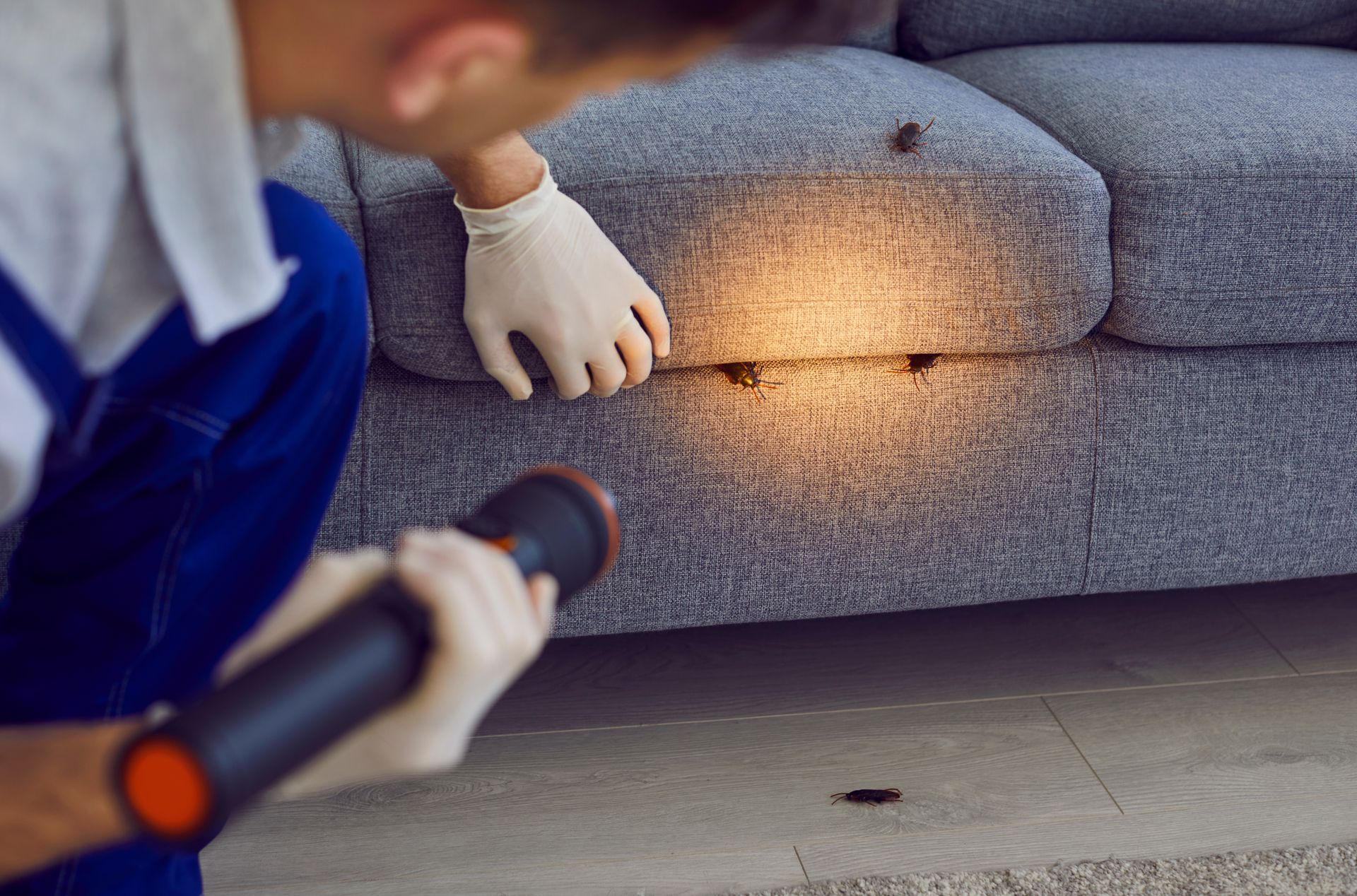WDO Inspections
in Martin, Palm Beach, St. Lucie & Indian River Counties
A WDO inspection—short for Wood-Destroying Organism inspection—is a required evaluation for many real estate transactions and loan approvals in the state of Florida. At Buyer Protection, we provide licensed WDO inspections across Martin County, Palm Beach County, St. Lucie County, and Indian River County. Each inspection is performed according to Florida Department of Agriculture and Consumer Services (FDACS) standards and includes all required documentation for lenders, agents, and homeowners. WDO inspections identify the presence of termites, wood-decay fungi, and other organisms capable of damaging the structural wood components of a building. Florida’s climate and soil conditions make these organisms especially common, making WDO inspections an essential step for both residential and commercial properties in South Florida.
What Is Included in a WDO Inspection
A WDO inspection focuses on identifying both active infestations and evidence of past activity involving organisms that damage wood. It also assesses conditions that may promote infestation, such as moisture intrusion, ground-to-wood contact, and improper ventilation.
Subterranean and Drywood Termite Detection
Florida is home to multiple termite species, including subterranean and drywood termites. Our inspectors examine baseboards, trim, wall voids, attics, and foundations for termite shelter tubes, damaged wood, discarded wings, and fecal material. This inspection is particularly critical in coastal cities like Jupiter, Vero Beach, and Stuart where termite activity is more frequent.
Wood-Decaying Fungi Evaluation
Wood-decay fungi thrive in damp or poorly ventilated areas, breaking down cellulose in wood and weakening structural components. We inspect crawlspaces, subfloor areas, wall cavities, and attics for fungal growth, discoloration, and wood rot—common problems in homes across humid zones like Palm Beach County and St. Lucie County.
Other Wood-Destroying Insects
Old house borers, powderpost beetles, and carpenter ants can all contribute to wood deterioration. Although less common than termites, their presence is noted during a WDO inspection. We look for boreholes, frass, and wood weakening that suggest an active or past infestation.
Conditions Conducive to Infestation
Beyond visible evidence of WDOs, we document factors that may increase the risk of infestation. These include wood in direct contact with soil, leaky plumbing, clogged gutters, vegetation overgrowth, or structural defects that trap moisture. Our inspection identifies these issues so that they can be corrected before problems develop or worsen.
Required for Real Estate and Loan Transactions
In Florida, a WDO inspection is often mandatory for VA, FHA, and other federally backed loans. Many private lenders and real estate agents also require the inspection before closing a property sale. Buyer Protection is licensed to perform and submit the Florida State WDO Inspection Report (Form FDACS-13645), which meets all lender and title company requirements.
WDO inspections are typically requested during the due diligence phase of a transaction and must be completed prior to funding or transfer of ownership. We coordinate with agents and buyers to ensure inspections are completed on time and that reports are delivered promptly.
Detailed WDO Inspection Reports
Our reports follow all state-required formatting and include the following components:
Clear Diagrams of the Property
The report contains a basic layout diagram that shows the areas of inspection and the location of any findings.
Description of Wood-Destroying Organisms
We specify the organism type (termites, fungi, beetles, etc.), whether activity is current or historical, and describe the extent of visible damage.
Photographic Documentation
Images of affected areas are included for clarity, supporting insurance claims, contractor quotes, and repair prioritization.
Conditions Contributing to WDO Activity
We note environmental and construction-related factors that encourage organism growth or allow access to wood materials.
Inspector Certification and License Information
Each report is signed and sealed by a licensed inspector authorized to conduct WDO inspections in Florida. This ensures legal compliance for transactions.
Areas Commonly Affected by WDOs in South Florida
Our experience throughout Martin County, Palm Beach County, St. Lucie County, and Indian River County allows us to recognize the most vulnerable locations for WDO activity in different building types.
Attics and Roof Framing
Drywood termites often infest attic spaces, especially in older wood-framed homes without impact-rated ventilation. Roof trusses and eaves are inspected for damage or staining.
Baseboards and Flooring
Subterranean termites target lower areas of a home first. We look for hollow-sounding wood, cracked flooring, and entry points near plumbing penetrations or slab edges.
Crawlspaces and Pier Foundations
Raised homes in areas like Stuart or Fort Pierce may have unsealed crawlspaces, which create high-risk conditions for both termites and fungi due to poor airflow and moisture.
Garages, Sheds, and Perimeter Wood Structures
Detached buildings and attached garages often contain untreated or unprotected wood exposed to the soil. These are high-risk zones for infestations to begin.
When to Schedule a WDO Inspection
We recommend scheduling a WDO inspection under the following circumstances:
As Part of a Property Sale
WDO inspections are required for many real estate deals in Florida. Even if not mandatory, they help buyers understand hidden risks.
When Refinancing or Reinsuring a Property
Lenders and insurance providers often request a WDO inspection to verify the condition of the property before approving new terms or coverage.
After Major Weather Events
Following hurricanes or flooding, homes should be evaluated for moisture intrusion and the potential for new infestations.
As a Preventive Measure
Annual WDO inspections are encouraged to catch issues early. Termites and fungi can remain hidden until structural damage is already advanced.
Licensed Inspections Across All Four Counties
Buyer Protection proudly serves Martin County, Palm Beach County, St. Lucie County, and Indian River County with timely, certified WDO inspection services. We understand the local environments, building styles, and risk zones in each county, allowing us to deliver more accurate assessments and actionable insights.
Our team works efficiently and discreetly, ensuring that your transaction, refinance, or maintenance plan proceeds smoothly with trusted documentation in hand.
Schedule a WDO Inspection with Buyer Protection
If you are buying, selling, refinancing, or maintaining a property in Martin County, Palm Beach County, St. Lucie County, or Indian River County, FL, contact Buyer Protection to schedule a licensed WDO inspection. Our certified reports help you meet legal requirements, identify hidden issues, and protect the structural integrity of your property.

